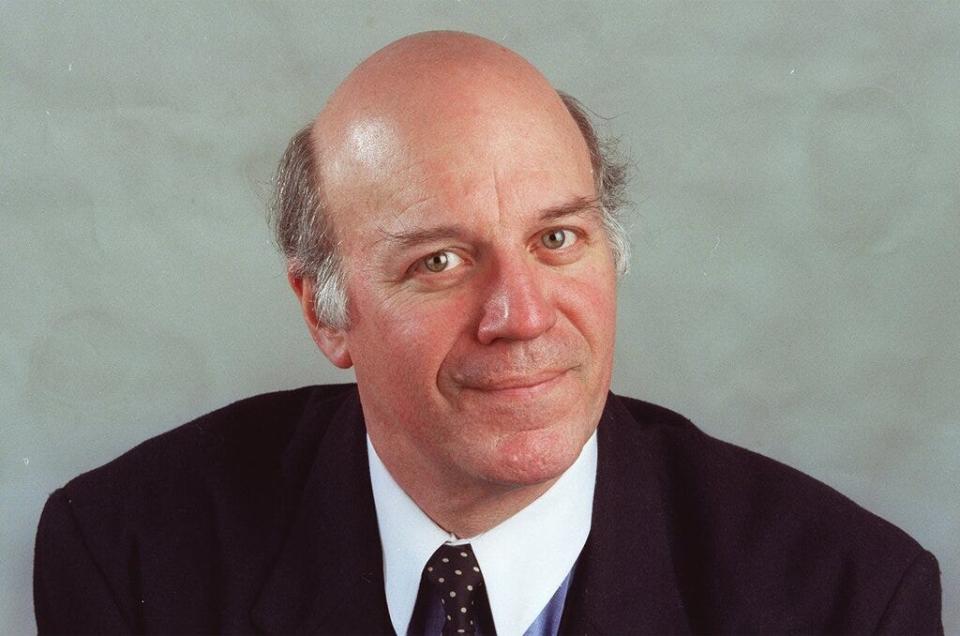Opinion: Brown: When faith trumps politics, there are dangers to democracy
I am writing this as a religious man. I have my faith, and I’ve studied the beliefs of others all my life. My mother’s ancient notes from my first experience of Sunday school reads, “Likes God.” So I’m not writing from any hostility to religion, but I also love living in a democracy.
Elections have consequences. Trump promised to appoint judges who’d overturn Roe v. Wade. America elected him — and now it’s done. How, then, is democracy imperiled?
Saint Paul defines faith as “belief in things unseen.” I believe in soul, for example, but cannot empirically prove that soul exists. Proof would require evidence that even a skeptic would be forced to accept. That is exactly what our court system requires: proof beyond the shadow of a doubt.
Our democratic process is certainly driven by belief and conscience, a competition between what different people perceive as threats and goods. But that requires a commonly accepted grounding in fact. Things unseen — especially things that are unseeable by definition — may be motivational but cannot serve as the grounds for creation and passage of civil law.

As Europeans settled in the Americas, they were fleeing cultures where inquisitions were torturing and burning people for errant beliefs. Where disagreements are, by their very natures, impervious to empirical evidence, force becomes the ultimate arbiter. A struggle takes place to capture the seats of temporal power, so what cannot be seen can be forced on those who do not believe it.
We've had disagreements here from our beginning. George Washington so appreciated religion’s power to shape public morality that he saw it as vital. Jefferson was wary of faith groups corrupting politics — and vice versa — and argued for a “wall of separation” between the two.
Once any faith gains access to the machinery of government, it triggers a panicked reaction from the rest, afraid that the force of law will be turned against them. The non-religious, the secular, fear this the most. We live in an age when one faction sees the fears of others as one of the triumphal joys of politics, so we live in a dangerous moment.
As I mentioned, I believe in soul. I don’t think we “have” a soul like we have an address or a Social Security number. I think we are a soul. The question isn’t why we have a soul but why we have bodies. What are we supposed to do with them?
This logic might well suggest I should oppose abortion. If our spiritual natures are the organizing principles, then it makes sense to believe soul precedes life… that flesh assembles itself — maybe even matter assembles itself — around a spiritual core. Some Mayan Americans put it this way: nothing exists in the world that was not first conceived in the mind of God. This is the central principle in the Christian idea of ensoulment.
Here's my problem. Neither the idea of soul — nor certainly of ensoulment — can be proved as evidence for our secular law. Citizens can reject the idea of God and soul altogether and live perfectly moral lives. Others can accept the idea of soul but have differing ideas of how it works, or when and where it comes from. This is precisely what our freedom of religion protects. This is also what the recent Supreme Court ruling endangers.
Roe v. Wade, however imperfect, attempted to offer a developing fetus increasing legal protections in direct proportion to its approach to viability. It was an attempted compromise in an age increasingly hostile to compromise or collaboration.
The new ruling enshrines a faith principle (ensoulment) as a foundation for America’s secular law. A majority of Justices — and certainly their partisan supporters — see it as a hard-won triumph in their campaign to make America more godly. They reason, as Washington believed, that Christianity is good for us. So to oppose it must be Satanic. It’s a gratifying world view — as long as God punishes the people you want Him to. It’s also an approach guaranteed to tear our country apart.
When faith is the organizing force behind an idea, it is faith — not law — that should advance it. Our 50-year-long argument over abortion was exactly what a healthy democracy should have been doing. In poll after poll over time, some two-thirds of Americans supported Roe’s first trimester protection of a woman’s right to choose if, when, and with whom to have babies. It’s not just grief over seeing this protection withdrawn, it’s the fear that in its moment of triumph, a religious minority has seized control of the law. This is where, Jefferson warned us long ago, our troubles begin.
Lawrence Brown is a columnist for the Cape Cod Times. Email him at columnresponse@gmail.com.
This article originally appeared on Cape Cod Times: Opinion Brown: When faith trumps politics, dangers to democracy emerge

